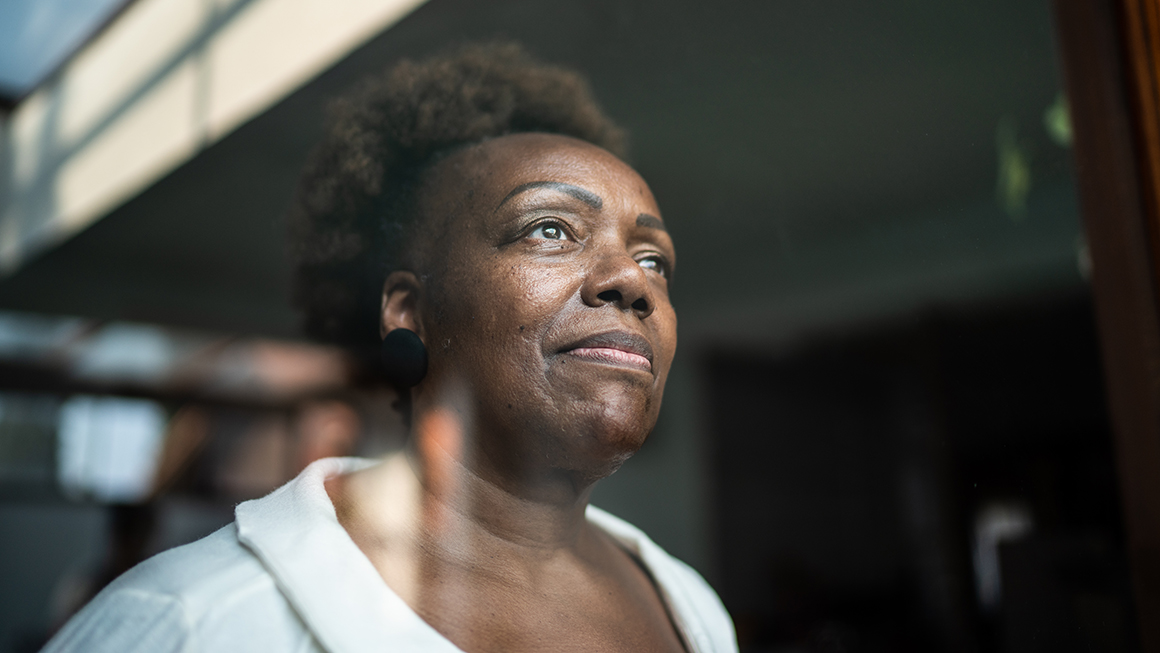
On a single night in January 2022, an estimated 21,000 people who identified as women experienced homelessness in Los Angeles County. Of those, more than 14,000 didn’t have a partner or children, and 75 percent of them—nearly 11,000—were unsheltered.
These “unaccompanied” women have unique needs and preferences and require specific housing and services policies and programs to address them. But research has found women experience difficulties in accessing and using homeless services.
As part of the 2022 Los Angeles County Women’s Needs Assessment, we spoke with 92 unaccompanied women experiencing or who had recently experienced homelessness in Los Angeles County and learned about their needs and preferences for services and housing.
Based on those conversations, we identified five key recommendations for communities and service providers working to serve unaccompanied women experiencing homelessness.
- Offer housing options that prioritize privacy, safety, and community
The women we spoke with were interested in and looking for permanent housing but felt the options they were offered often did not meet their needs. Women preferred private housing units (such as studio apartments) over shared housing, and wanted to live in safe, accessible neighborhoods near their social supports and places of employment. Some women left their previous housing because it didn’t meet those needs.
- Address safety considerations across the range of homeless services and housing options
Women described facing numerous risks to their safety, including verbal threats, violence, discrimination, and harassment—not only while enduring unsheltered homelessness but also in homeless and housing programs, with other residents and staff and security contributing to a lack of perceived safety.
Because of this, some women opted to sleep outside rather than in programs, and others reported even leaving permanent housing because they felt unsafe in the housing or neighborhood they were placed in.
- Consider how housing prioritization criteria could require women to remain in dangerous situations and remove barriers to programming where possible
Homelessness itself is a traumatic experience, but the women we talked with had endured numerous traumas throughout their lives, such as health crises and interpersonal violence. For some, these traumas predated their homelessness episode and, in some instances, were directly related to their current homelessness. And while homeless, women can experience multiple forms of victimization.
Enduring homelessness for longer than expected is traumatic. Some women we spoke with had experienced homelessness their entire adult lives, and to qualify for housing programs, they had to meet certain homelessness duration criteria that essentially required them to prolong their trauma.
- Create safe spaces for women to support one another
Across sessions, women validated each other’s experiences and shared useful, valuable resources. They spoke about wanting opportunities for peer connection, within service settings or externally. But they also emphasized the distinction between meaningful connection and mandated socialization through shelters or other programs and stressed the continued need for privacy in their personal lives.
- Treat women with dignity and respect
Women stressed the importance of dignity while experiencing homelessness, both as it relates to their personal dignity and in how they were treated by providers. Women want and need to make the choices and receive the services best for them. They also described the importance of respect from service providers and systems.
Women experiencing homelessness endure great losses to personal dignity and autonomy, and the systems intended to help them shouldn’t reinforce those losses.
Let’s build a future where everyone, everywhere has the opportunity and power to thrive
Urban is more determined than ever to partner with changemakers to unlock opportunities that give people across the country a fair shot at reaching their fullest potential. Invest in Urban to power this type of work.